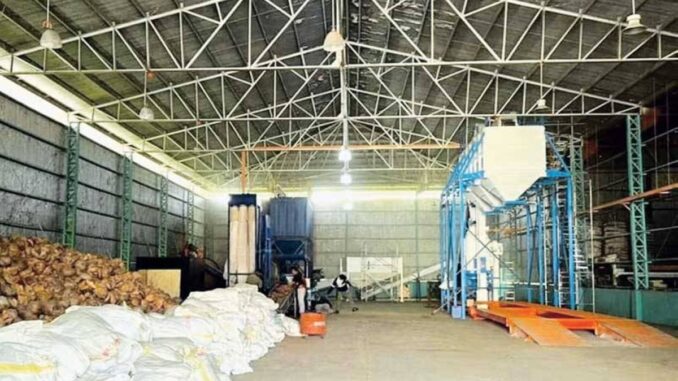
ECO-FRIENDLY biomass pellets can significantly cut carbon dioxide (CO2) emissions in Philippine industrial processes, which use a lot of coal for heat generation. Berde Kaway, the country’s first and only Department of Energy (DoE)-certified biomass production facility, is currently producing 600 tons a month.
This development can help accelerate biomass energy production and its integration into existing industrial boilers with minimal infrastructure changes. It offers a viable alternative to coal, reduces carbon emissions and supports the circular economy by utilizing agricultural waste.
Biomass pellet production begins with collecting rice husks, coconut shells, and agricultural by-products that are dried to reduce moisture content, ensuring that the final product is energy-efficient when burned. The dried material is finely ground and compressed under high pressure to form pellets. The resulting biomass pellets are small, cylindrical and highly dense, which allows for efficient storage and transportation. The significant amount of energy they pack can make them a substitute for traditional fossil fuels like coal.
The absence of binders or additives makes the pellets a pure and clean fuel source. Berde Kaway, located in Quezon province, plans to expand production to 250,000 tons annually by 2027. Its certification is a result of collaboration with REurasia Management Corp. and the DoE.


Be the first to comment